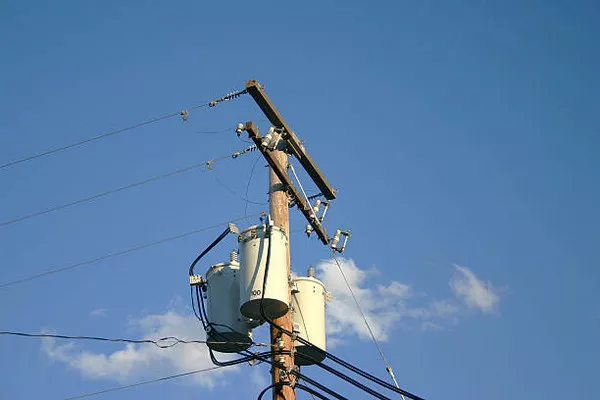Transformer oil, also known as insulating oil, is an essential component in electrical power systems, particularly in transformers, where it serves both as an insulator and a coolant. While transformer oil is critical for the reliable and efficient operation of transformers, concerns have been raised regarding its potential health and environmental impacts. This article delves into the characteristics of transformer oil, its uses, potential hazards, and the measures necessary to mitigate its risks.
Understanding Transformer Oil
Transformer oil is typically a highly refined mineral oil derived from crude petroleum. It possesses excellent dielectric properties, which means it can effectively insulate electrical components. Additionally, it acts as a coolant, dissipating heat generated within transformers during their operation. The oil’s chemical stability ensures it can withstand the high electrical stresses and temperatures associated with transformer use.
There are two primary types of transformer oils:
Mineral Oil-Based Transformer Oil: The most commonly used type, known for its good electrical insulating properties and cost-effectiveness.
Synthetic and Natural Ester Oils: These are used in environmentally sensitive applications due to their biodegradability and reduced toxicity.
Potential Health Hazards
The health hazards of transformer oil depend largely on its composition, especially the presence of additives and contaminants. Here are the key health concerns associated with transformer oil:
Polychlorinated Biphenyls (PCBs): Historically, PCBs were widely used in transformer oils due to their excellent thermal stability and insulating properties. However, PCBs are now known to be highly toxic and persistent environmental pollutants. They can cause various adverse health effects, including cancer, immune system suppression, and neurological damage. The production and use of PCBs have been banned or severely restricted in many countries since the late 20th century, but old transformers may still contain these hazardous substances.
Hydrocarbons and Additives: Modern transformer oils may contain a variety of hydrocarbons and chemical additives to enhance performance. Some of these chemicals can be harmful if ingested, inhaled, or if they come into contact with the skin. Long-term exposure to certain hydrocarbons has been linked to respiratory issues, skin irritation, and other health problems.
Handling and Disposal Risks: Improper handling and disposal of transformer oil can lead to accidental spills and leaks, posing significant health risks to workers and the public. Direct exposure to spilled oil can cause skin and eye irritation, and inhaling fumes from heated oil can affect the respiratory system.
Environmental Impact
Transformer oil spills and leaks can have serious environmental consequences. The primary environmental concerns associated with transformer oil include:
Soil and Water Contamination: When transformer oil leaks or is improperly disposed of, it can seep into the soil and groundwater, leading to contamination. This can affect local ecosystems, plant life, and potable water sources. Oil-contaminated soil can take years to remediate and may pose long-term environmental hazards.
Impact on Aquatic Life: If transformer oil enters water bodies, it can form a thin film on the surface, disrupting the oxygen exchange and harming aquatic organisms. The toxic components of the oil can also accumulate in the tissues of fish and other wildlife, leading to bioaccumulation and biomagnification through the food chain.
Persistence and Degradation: Mineral-based transformer oils are not readily biodegradable, meaning they can persist in the environment for extended periods. This long-term presence can exacerbate their impact on ecosystems and wildlife.
Mitigation Measures and Best Practices
To minimize the health and enviroonmental risks associated with transformer oil, several measures and best practices should be adopted:
Use of Non-Toxic and Biodegradable Oils: Transitioning to biodegradable and non-toxic alternatives, such as natural ester oils, can significantly reduce environmental and health risks. These oils have comparable insulating properties to mineral oils but are much safer in case of spills or leaks.
Regular Maintenance and Monitoring: Routine maintenance and monitoring of transformers can help detect and address oil leaks and degradation before they become significant problems. This includes regular testing of oil quality and condition, ensuring timely replacement and proper disposal of used oil.
Proper Handling and Storage: Implementing stringent protocols for the handling, storage, and transportation of transformer oil can prevent accidental spills and leaks. This includes using appropriate containers, spill containment systems, and training personnel on safe handling practices.
Spill Response and Remediation Plans: Having a well-defined spill response and remediation plan is crucial for mitigating the impact of transformer oil spills. This includes immediate containment, cleanup procedures, and long-term remediation strategies to restore affected areas.
Regulatory Compliance and Safety Standards: Adhering to national and international regulations and safety standards for the use and disposal of transformer oil is essential. This includes compliance with guidelines set by environmental agencies and industry bodies, such as the International Electrotechnical Commission (IEC) and the Environmental Protection Agency (EPA).
See Also Inside a Power Pole Transformer
Conclusion
Transformer oil plays a vital role in the operation of electrical power systems, but its potential health and environmental hazards cannot be ignored. While modern formulations and stringent regulations have reduced some risks, the legacy of older, more toxic oils like PCBs continues to pose challenges. By adopting safer alternatives, adhering to best practices, and implementing robust spill response plans, the negative impacts of transformer oil can be significantly mitigated. Ensuring the safety of workers, communities, and ecosystems requires a comprehensive approach to managing and regulating the use of transformer oil in our ever-expanding electrical infrastructure.

